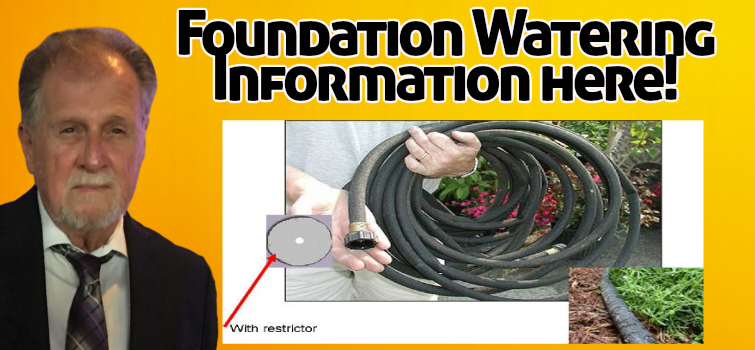
Foundation watering with soaker hose for dealing with foundation damaged homes.
Foundation watering done correctly can help protect your foundation.
Foundation watering done wrong will cause many problems.
The key principle is to ensure an even distribution of water around the foundation, keeping the soil adequately hydrated during dry spells and droughts. However, using a soaker hose is just one aspect of maintaining proper soil conditions under and around a typical residential or small commercial foundation.
The type and placement of soaker hoses can significantly impact the protection of your home's foundation in North Texas. Each property is unique in its design, landscaping, soil composition, and drainage characteristics. Therefore, each installation should be customized to best suit the property's needs.
As part of my service, I educate customers on selecting the right type of soaker/drip hose and integrating it with drainage systems, landscaping, and other factors that affect foundation stability. People hire me to help prevent or address foundation issues successfully.
If I prevent you from purchasing an unnecessary pier, you've saved money. It's a wise investment and a form of inexpensive insurance. I act as your advocate and ensure checks and balances. Keep in mind: With over 250 foundation contractors in the Texas area, getting three bids doesn't guarantee the best job at the right price. I can help you navigate these challenges. For more information, please continue reading.
Need help? Contact me: Richard Rash 817-308-8186
Foundation Watering
Foundation watering done correctly can prevent foundation damage.
Done incorrectly, foundation watering will cause damage to the foundation.
Foundation watering must be correctly maintained, during hot dry periods, to provide a steady support for your home foundation, which of course provides support for the rest of your home.
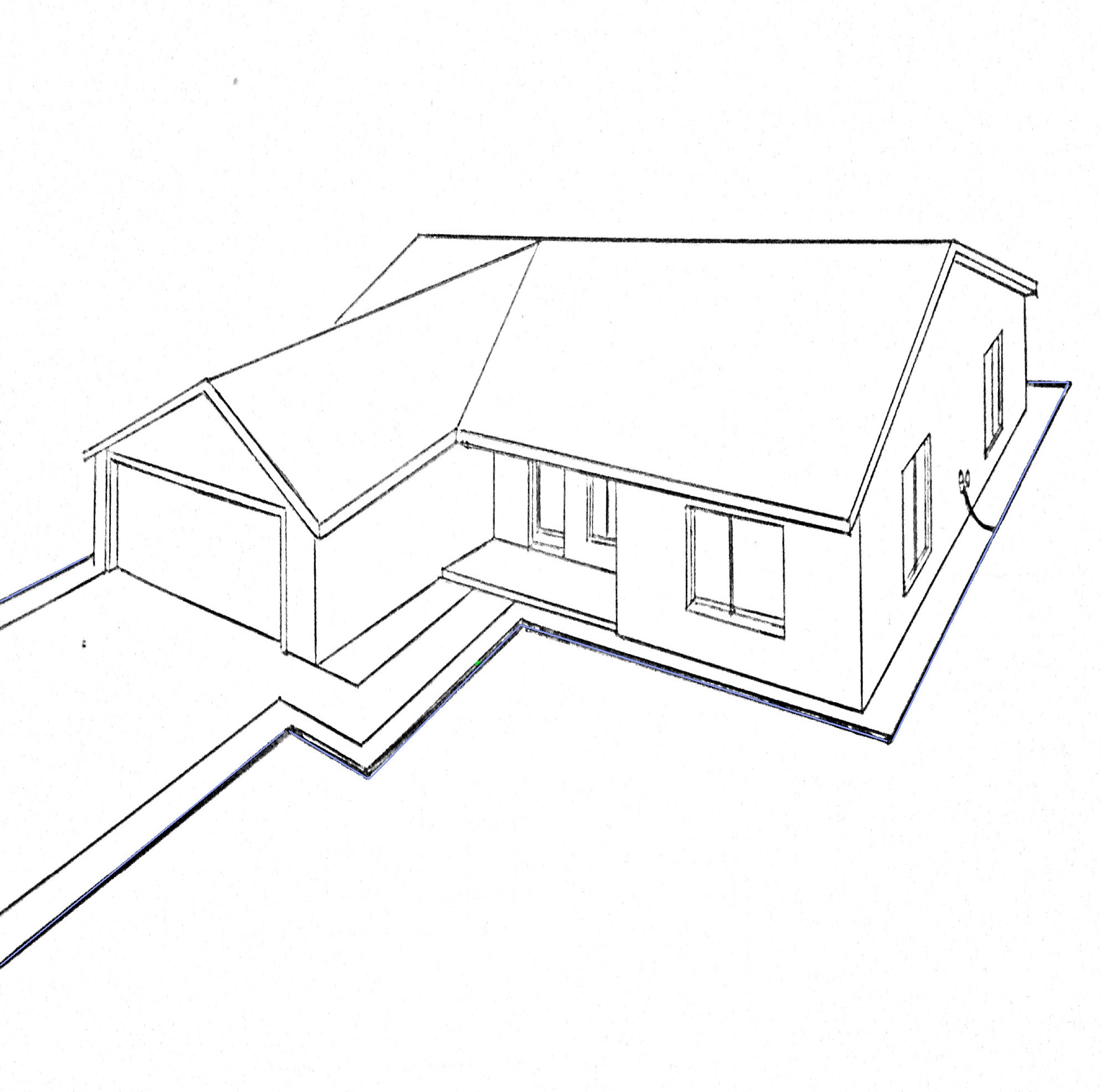
The first step in proper hydration is proper equipment. Proper equipment consists of enough soaker hose to surround your area of concern. Your area of concern may also include the patio, driveway, sidewalk, swimming pool and free standing buildings that are supported by the expansive soils.
Proper soaker hose should include a restrictor in the female end to allow a controlled amount of water to enter the hose. Soaker should be placed flat on the ground at point where water is introduced to the system. A short section of regular garden hose may be hooked to the faucet to bring water to ground level.
![img_0382-small[1]](https://repairfoundations.com/wp-content/uploads/2017/12/img_0382-small1.jpg)
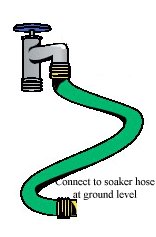
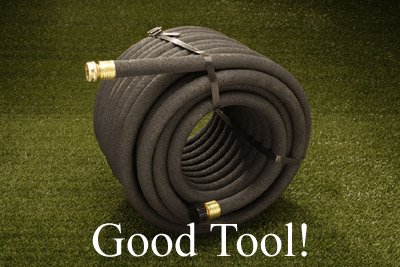
When foundation watering, soaker should be placed approximately 8” to 12” from the structure.
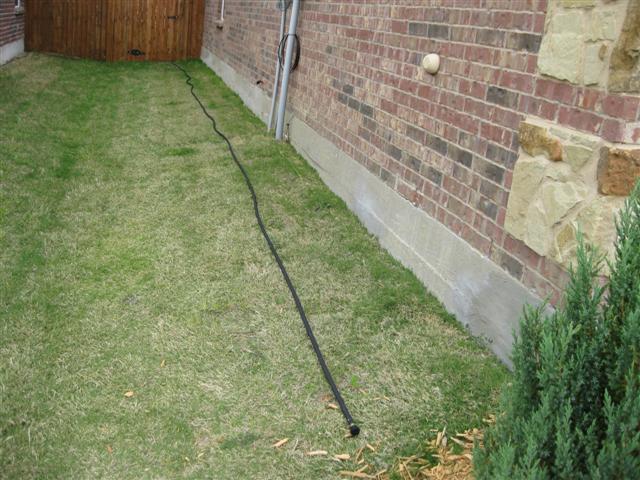
Soaker hose should provide enough moisture to keep soil, between soaker and foundation, slightly moist. Wet is too much, dry is too little. Slightly moist! If at any time soil begins to pull away from the structure, turn up the system! Getting muddy? Turn it down. In order to make system easier to design and implement you may use Y splitters, you may connect more than one section of hose, and you may use timers to control the turn on and off and length of cycle. Be aware and check system regularly. Keep soaker hose as flat as possible. DO NOT NEGLECT THE SYSTEM
The: do not do's
When foundation watering: do not place soaker next to foundation.
Do not place soaker closer than 8” to structure.
When air condition or other objects prevent 8” distance, go in front of, rather than behind the unit.
Do not go between house and fence, go under fence. Keep hose as level as possible.
Do not bury soaker. Do not allow water to run to point of standing water.
Do not allow selected areas to be wet while other areas are exposed to extended drying.
The number one thing to remember is this is not NASA we are not trying to put a man on the moon. If, occasionally, you over do it, or under do it, or forget to do it, your home will not collapse.
However, the better you work the plan... the less likely you are to have foundation failure. Done right foundation watering can be valuable!